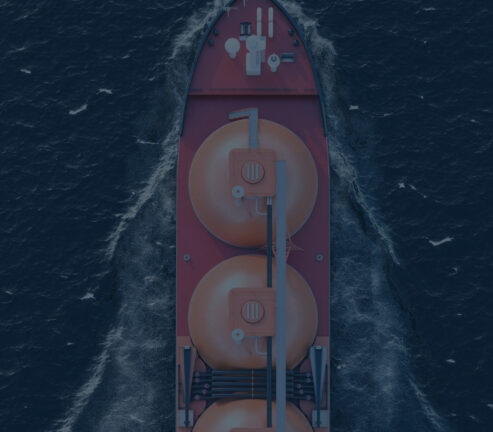LNG Safety & Security

The LNG industry operates within a framework of rigorous safety and security regulations enforced by government agencies and regulatory bodies. Compliance with these regulations isn’t solely a legal obligation but also serves as a fundamental pillar in upholding public trust and confidence in the industry’s operations.
LNG facilities are often strategically located near residential areas or vital infrastructure, emphasizing the need for robust safety and security measures to mitigate potential risks. Furthermore, given their proximity to water bodies or populated regions, any incidents within these facilities can result in significant environmental ramifications. Therefore, implementing and adhering to stringent process safety and security measures is imperative to prevent such incidents and minimize adverse environmental impacts.
AcuTech has decades of experience and a proven track record of providing comprehensive solutions for safe and secure LNG risk management. Our consultants have played pivotal roles in shaping assessment methodologies and industry standards, positioning us as pioneers in the field. They have maintained currency by forging invaluable relationships, notably with the U.S. Coast Guard. All these efforts have been in support of providing the best service possible to our clients in managing the risks associated with operating safe and secure LNG facilities.
- Independent Risk Assessments (IRA) for LNG Deepwater Ports (DWP)
- Waterway Suitability Assessments (WSA)
- Security Vulnerability Assessments
- Maritime Transportation Security Act (MTSA) Support
- Quantitative Risk Analysis (QRA)
- FERC Filing Support
- Emergency Response Planning
- Management System Development
- Security Planning
- FERC LNG Terminal Siting
- Environmental Impact Statement
- IS Support
- Process HAZOP and SIL Determinations
- Facility Siting Studies
- LNG Carrier Transit Logistics Studies
- LNG Carrier Simulation
AcuTech’s consultants are well versed in codes and standards developed by industry bodies and will refer to these as well as each client’s local jurisdiction codes and standards. A sampling of the relevant codes and standards can be found below.
- NFPA 59A. The National Fire Protection Association (NFPA) Standard for the Production, Storage, and Handling of Liquefied Natural Gas (LNG) outlines requirements for LNG facility siting, design, construction, and operation to mitigate fire and explosion hazards.
- API 625. American Petroleum Institute (API) Standard 625 covers the design and construction of large, welded, low-pressure storage tanks for LNG.
- ISO 14726. This International Organization for Standardization (ISO) standard provides guidelines for the identification and marking of piping systems used in LNG installations to facilitate safe operation and maintenance.
- ASME B31.3. American Society of Mechanical Engineers (ASME) Boiler and Pressure Vessel Code, Section B31.3, outlines requirements for the design, construction, inspection, and testing of process piping systems, including those used in LNG facilities.
- IGC Code. The International Code for the Construction and Equipment of Ships Carrying Liquefied Gases in Bulk (IGC Code), developed by the International Maritime Organization (IMO), sets forth safety standards for LNG carriers and terminals.
- EN 1473. This European standard provides guidance on the design and safety of LNG installations, covering areas such as spill containment, ventilation, and emergency response planning.
- USCG Regulations. The U.S. Coast Guard (USCG) imposes regulations specific to LNG facilities operating within U.S. waters, ensuring compliance with safety, security, and environmental protection requirements.
- FERC Regulations. In the United States, the Federal Energy Regulatory Commission (FERC) oversees the siting, construction, and operation of LNG import and export terminals, imposing regulatory requirements to protect public safety and the environment.
AcuTech consultants have contributed to the following standards, codes and programs:
- Our consultants served as the LNG, Petroleum & Chemical Industry Sector Coordinator for the Risk Analysis & Management for Critical Asset Protection (RAMCAP Plus) project. They developed a security vulnerability assessment method for LNG facilities.
- AcuTech was instrumental in developing the Federal Energy Regulatory Commission (FERC) Resource Report 11/13.
- AcuTech was instrumental in creating the American Petroleum (API) Security Risk Assessment Standard 780 which we use for LNG security assessments and waterway sustainability assessments.

This paper describes the difficulties in applying traditional QRA to intentional acts, and how security risks are being estimated by the LNG industry and other industries globally.
